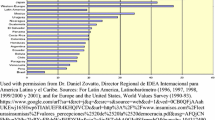Abstract
The article presents a grounded theory case study of a consumer-run alternative services organization, operated by and for people labeled chronically mentally ill in Michigan. We analyze the organization's emergence and development as a process of revitalization through which participants mobilized to transform their private and public identities. Innovations, including self-disclosure rituals and advocacy strategies, were developed by the group's founder during a period of social dislocation following deinstitutionalization. Subsequently, through their advocacy efforts for and with other consumers, group members laid the foundation for a unique form of locally-based political activism, blending innovative self-advocacy strategies with a critique of conventional mental health care. Active participants' efforts have created a mental health consumer organization that members perceive as an empowering and sometimes rehabilitative alternative within Michigan's public mental health care system.
Similar content being viewed by others
References
Anspach, R. (1979). “From stigma to identity politics: Political activism among the physically disabled and former mental patients.”Social Science and Medicine 13(A):765–73.
Bassuk, E. and S. Gerson (1978). “Deinstitutionalization and mental health services.”Scientific American 238 (2):46–53.
Berger, P. and T. Luckmann (1967).The Social Construction of Reality. New York: Doubleday.
Bloom, B. (1984).Community Mental Health: A General Introduction. 2nd ed. Belmont, CA: Brooks/Cole Publishing.
—— and S. Asher (1982). “Patient Rights and Patient Advocacy: A Historical and Conceptual Application.” Pp. 17–56 in B. Bloom and S. Asher (eds.),Psychiatric Patient Rights and Patient Advocacy: Issues and Evidence. New York: Human Sciences Press.
Borman, L. D., L. E. Borck, R. Hess, and F. L. Pasquale (eds.) (1982). “Helping People to Help Themselves: Self-help and Prevention.”Prevention in Human Services 1 (3).
Brown, P. (1985).The Transfer of Care: Psychiatric Deinstitutionalization and its Aftermath. London: Routledge & Kegan Paul.
Burt, M. and K. Pittma (1985).Testing the Social Safety Net. Washington, D.C.: The Urban Institute Press.
Chamberlin, J. (1978).On Our Own: Patient-Controlled Alternatives to the Mental Health System. New York: McGraw-Hill.
— (1987). “Movement Sees Growth, Change and Diversity.” Mad Lib:The Voice of the Ultimate Civil Rights Movement 1 (1): July, Washington, D.C.
Chandler, S. (1990).Competing Realities: The Contested Terrain of Mental Health Advocacy. New York: Praeger.
Durkheim, E. (1915)Elementary Forms of Religious Life. J. Swain, trans. London: Unwin.
—— (1957). Professional Ethics and Civic Morals. C. Brookfield, trans. London: Routledge & Kegan Paul.
Estroff, S. (1981).Making it Crazy: An Ethnography of Psychiatric Clients in an American Community. Berkeley, CA: University of California Press.
Freddolino, P. (1983). “Findings from the National Mental Health Advocacy Survey.”Mental Disability Law Reporter 7: 416–435.
Glaser, B. G. (1978).Theoretical Sensitivity: Advances in the Methodology of Grounded Theory. Mill Valley, CA: Sociology Press.
—— and A. L. Strauss (1967).The Discovery of Grounded Theory: Strategies for Qualitative Research. Chicago: Aldine.
Goffman, E. (1959). “The moral career of the mental patient.”Psychiatry 22: 123–42.
—— (1962).Asylums: Essays on the Social Situation of Mental Patients and Other Inmates. New York: Doubleday.
Hirsh, S., J. K. Adams, L. R. Frank, W. Hudson, R. Keene, G. Krawitz-Keene, D. Richman and R. Roth, eds. (1974).Madness Network News Reader. San Francisco: Glide Publications.
McCoy, M. (1989).Mental Health Consumerism Revealed: Toward a Theory of Social Vulnerability States. Ann Arbor, MI: University Microfilms International.
Michigan Department of Mental Health (MDMH) (1984).Final report, consumer-run alternative services: Demonstration and evaluation projects, 1982–1984. Prepared by C. Mowbray, P. Chamberlain, and D. Barker. Lansing: State of Michigan.
Mowbray, C., P. Chamberlain, M. Jennings and C. Reed. (1988). “Consumer-Run Mental Health Services: Results from Five Demonstration Projects.”Community Mental Health Journal 24 (2): 151–156.
Mosher, L. R. and L. Burti (1989).Community Mental Health: Principles and Practice. New York: Norton & Company.
Pattison, E. M., D. Defrancesco, P. Wood, H. Frazier, and J. Crowley (1975). “A Psychosocial Kinship Model for Family Therapy.”American Journal of Psychiatry 132 (12): 1246–1251.
Powell, T. (1987).Self-Help Organizations and Professional Practice. Silver Springs, MD.: National Association of Social Workers.
Rogers, M. F. (1983).Sociology, Ethnomethodology, and Experience: A Phenomenological Critique. Cambridge, MA: Cambridge University Press.
Smith, J. Z. (1982). “The bare facts of ritual.” InImagining Religion: From Babylon to Jonestown. Pp. 53–65. Chicago: University of Chicago Press.
Torrey, E. F. (1989). “Thirty years of shame.”Policy Review (Spring): 10–15.
Wallace, A. (1956). “Revitalization movements.”American Anthropologist 58: 264–81.
—— (1966).Religion: An Anthropological View. New York: Random House.
—— (1972). “Paradigmatic processes in culture change.”American Anthropologist 74: 467–78.
Author information
Authors and Affiliations
Rights and permissions
About this article
Cite this article
McCoy, M.L., Aronoff, M. Against all odds: Revitalization of local self-help alternatives by longterm mental health consumers. Qual Sociol 17, 365–381 (1994). https://doi.org/10.1007/BF02393336
Issue Date:
DOI: https://doi.org/10.1007/BF02393336



